There’s a lot of debate about oil on a vegan diet. Is it good for our health, waistline or the planet?
Cooking oils are used in so many products, from sauces to baked goods, spreads and sweets, but are they all vegan-friendly?
Yes, olive oil is vegan as it doesn’t contain any animal-sourced ingredients.
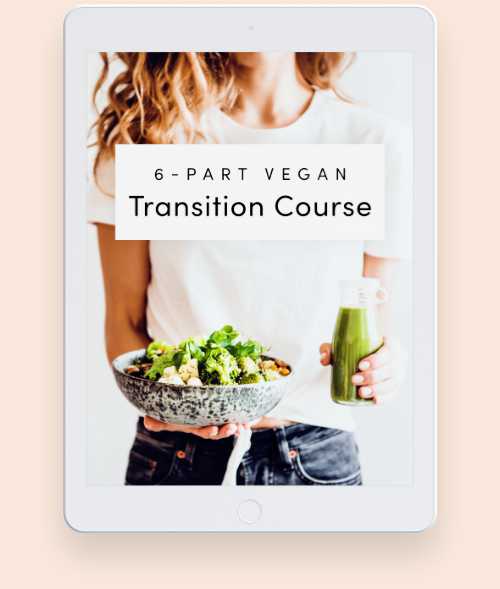
join our free vegan course!
Learn how to thrive on a plant-based diet with practical tips & a 3-day meal plan!
However, you sometimes see vegan recipes that are “oil-free” and might wonder whether ingredients like olive oil should be avoided.
If you’re interested in similar articles, check out Is Oil Good For You, Is Bread Vegan, Is Ketchup Vegan and Do Vegans Eat Eggs.
We also have a complete vegan nutrition guide with printable PDFs!
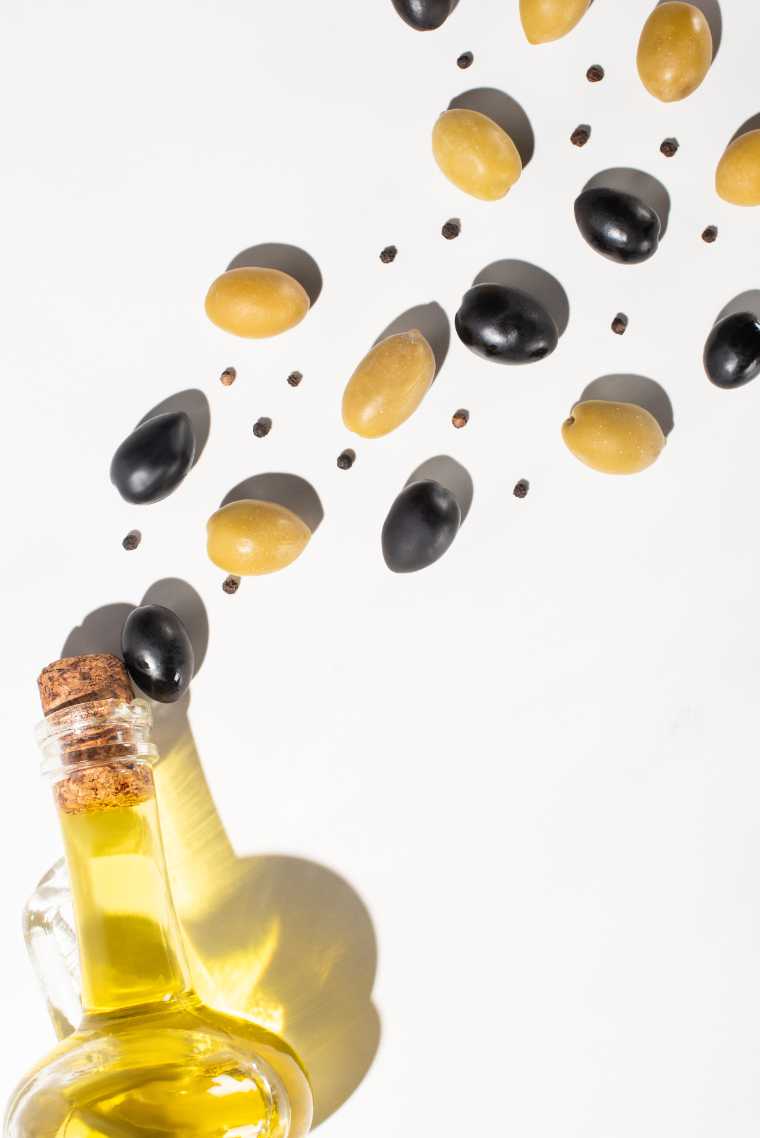
Is olive oil vegan
In short, yes, olive oil is vegan because it consists of olives that have been pressed or refined using a filter.
It is free from animal products, but some vegans still don’t consume olive oil — or any other oils, for that matter.
While oil is a great vegan food swap for butter, it is high in fat and calories and should be consumed in moderation. Because some people try to follow a vegan weight loss diet, they cut out oil completely!
Production methods
Olives consist of 30% fat which is used to make olive oil. There are different steps necessary before it ends up on our supermarket shelves:
- Processing & malaxation: this refers to crushing the washed olives into a thick paste, then adding water and churning the mixture to allow large oil droplets to form
- Pressing: once the olive water mixture has been sufficiently stirred, a mechanical oil press or centrifuge is used to separate the olive oil from the water and pulp.
- Refining: this step gets skipped for virgin or extra virgin olive oil! Other grades of olive oil are refined using heat or chemicals before they end up on our shelves.
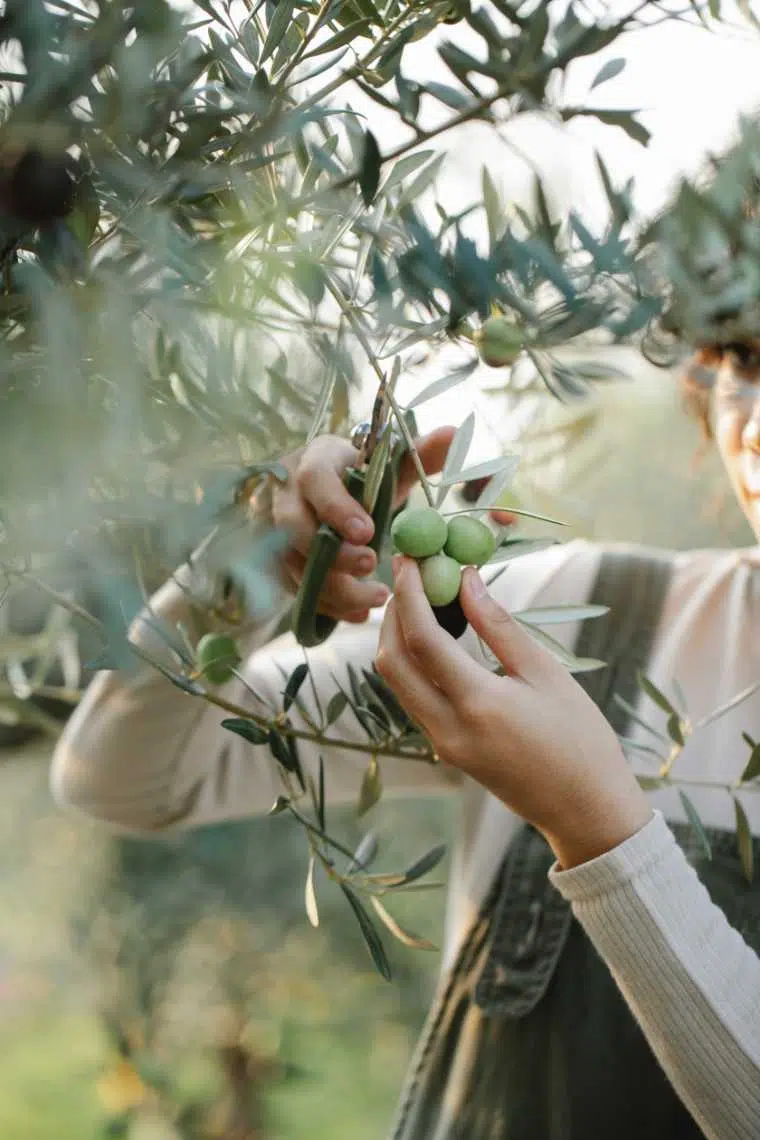
Different grades of olive oil
You’ve probably seen the term “extra virgin olive oil.” But what does it mean and is it superior?
- Extra virgin olive oil — the highest grade of olive oil that is considered to have a superior taste. The quality, aroma, flavor, color, and price can vary greatly from one brand to another and it should be used for cold dishes.
- Virgin olive oil — this type is just slightly lower in quality than extra virgin and offers a lovely flavor; you can use it for frying or sautéing.
- Cold-pressed olive oil — this grade was pressed without heat and is richer in flavor; because it is considered superior, this oil has a higher price tag.
- Refined olive oil — has undergone the additional refining step and is usually labeled “olive oil”; it tastes much more neutral and may be blended with more flavorful oils!
Is olive oil healthy?
Most experts agree that olive oil contributes to health in different ways.
While it doesn’t make bacon magically a health food if you use it for cooking, olive oil is rich in monounsaturated fats, omega 3 and omega 6 and also contains vitamin E and K!
Studies suggest that these fatty acids are beneficial for human health — especially when it comes to preventing strokes, heart disease, the risk for type 2 diabetes and Alzheimer’s.
Replacing saturated fat from butter or lard with olive oil is commonly suggested by healthy experts!
How to use olive oil
It’s important to keep temperatures in mind when you use olive oil. Not all grades are meant for cooking!
Extra virgin olive oil retains some antioxidants and bioactive compounds from olives. It’s better to use it only for cold dishes like salad dressings or making dips like hummus. Light sautéing is also fine or stirring it into soups as a finish.
Add it to your summer salads but don’t use it for roasting vegetables or frying!
Its smoke point is 350°F (180°C) whereas refined olive oil can be heat to 440°F (230°C).
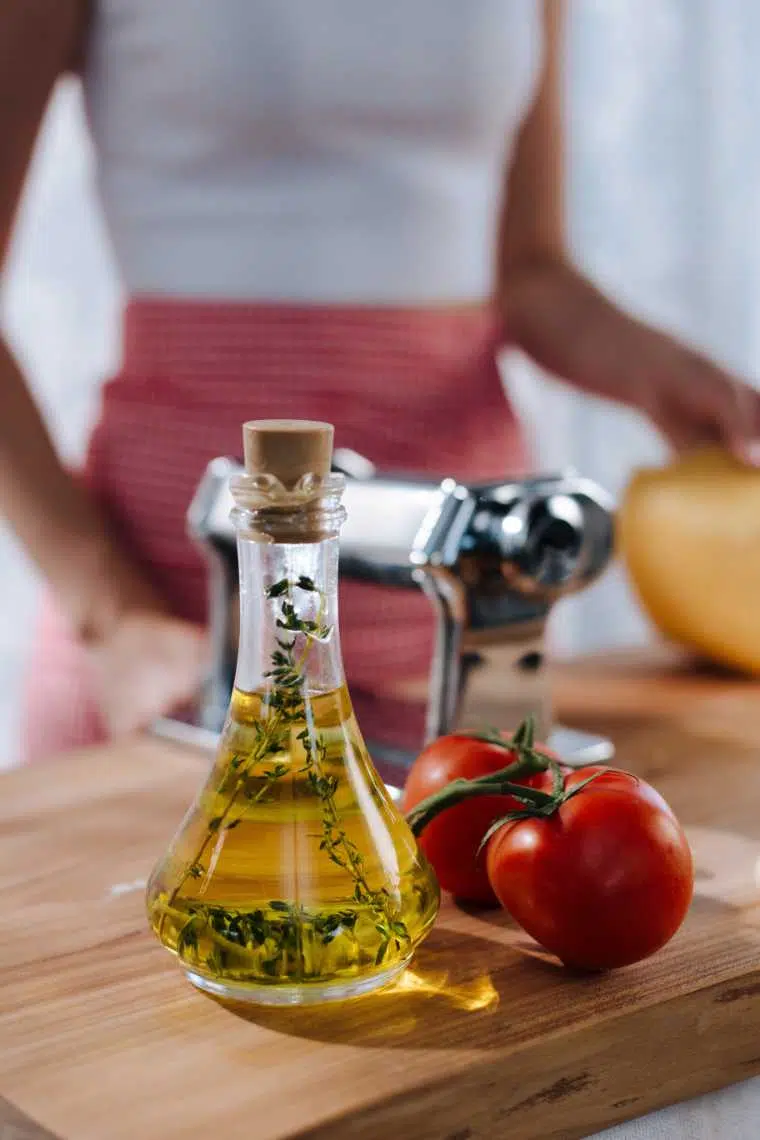
Other vegan cooking oils
- Peanut oil
- Avocado oil
- Canola oil
- Soybean oil
- Sunflower oil
These oils, just like olive oil, are promoted as “better-for-you” by the American Heart Association.
Additional tips & facts
- Storage: try to keep your olive oil where it’s cool, dry and dark to keep it fresh for longer. Whenever your oil smells bad or rancid, throw it out!
- Bottles: buy olive oil in dark glass bottles, not plastic.
- Environment: olive oil uses more water during production than soybean, sunflower seed or coconut oil; it also produces more greenhouse gas emissions compared to other oils.
- Smoke point: any oil starts to degrade once it reaches a certain temperature; if this happens, get rid of it!
- Quantities: buy smaller bottles of olive oil and don’t drown your food in it unless you’re trying to gain weight.
- Calories: one tablespoon of olive oil has around 120 calories, so be mindful about serving sizes.

free 7-day vegan meal plan
Your next week of eating is planned out with these quick and delicious vegan bowls, meal prepping steps & full grocery list.
More vegan guides
If you want to make a vegan lifestyle healthy and fun, read these articles next!
- Vegan Ingredients Checker
- Best Vegan Cookbooks
- B12 on a Vegan Diet
- Vegan Questions Answered
- Plant-Based Protein 101
Do you love using olive oil? Let us know in the comments below, Pin this article here and share it with your friends!

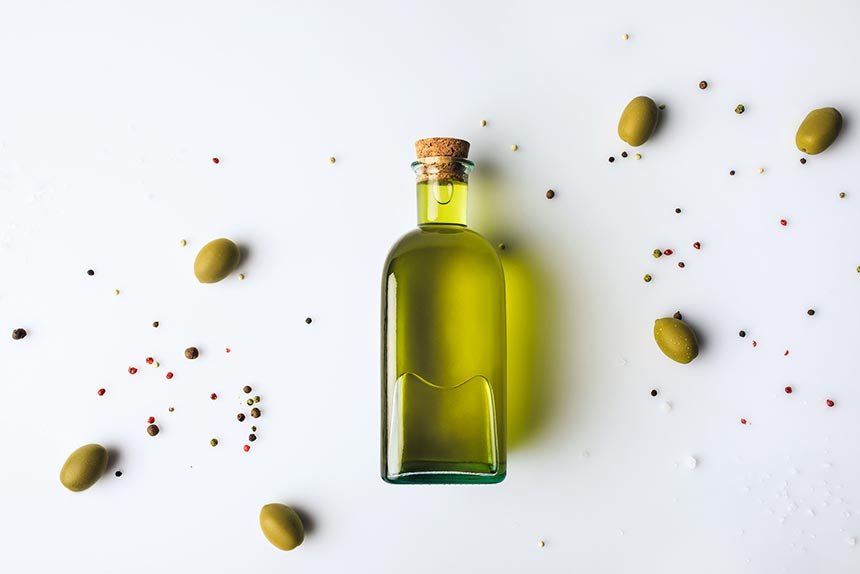
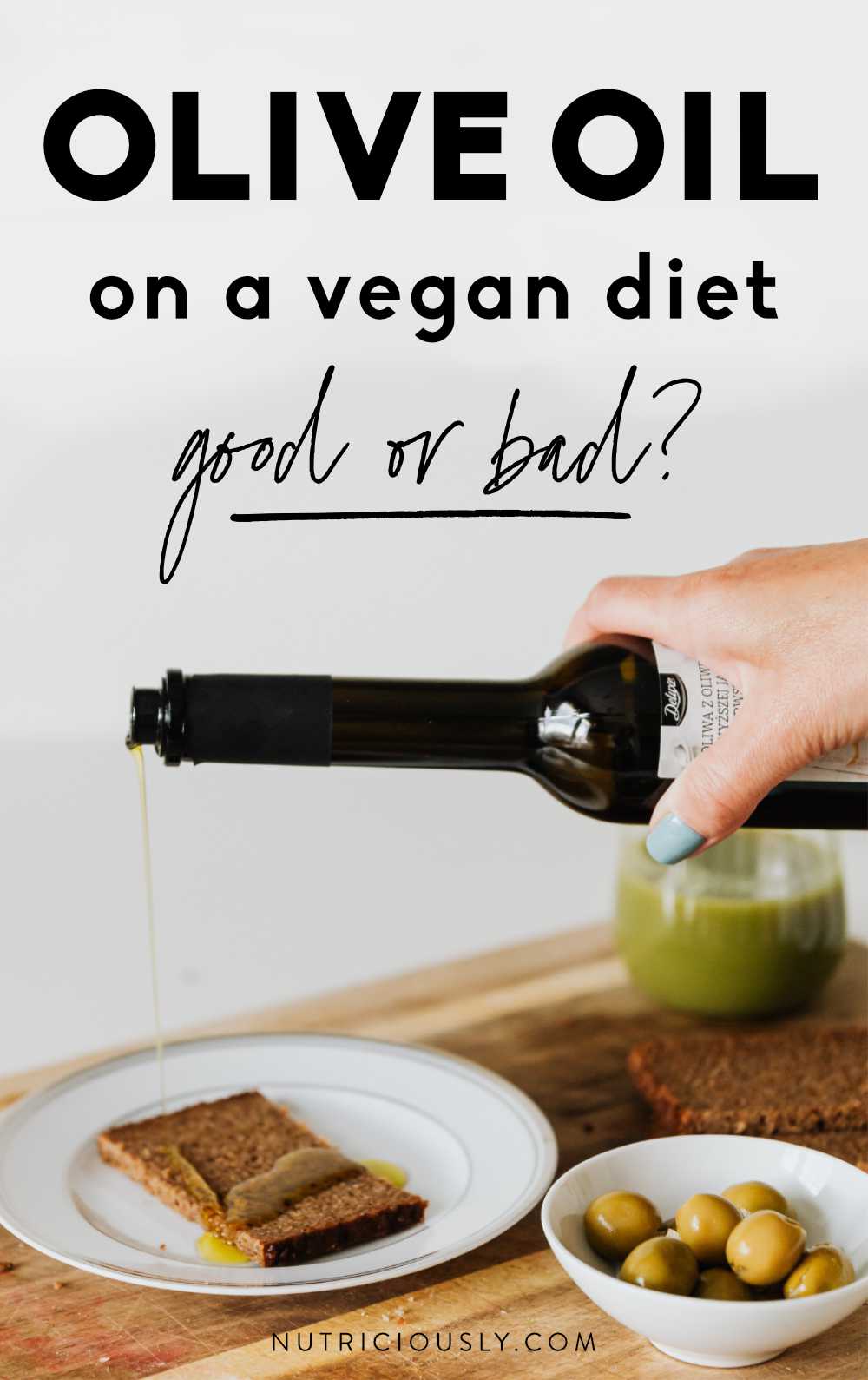

 Alena Schowalter is a Certified Vegan Nutritionist who has been a vegetarian since childhood and vegan since 2012. Together with her husband, she founded nutriciously in 2015 and has been guiding thousands of people through different transition stages towards a healthy plant-based diet. She’s received training in the fields of nutrition, music therapy and social work. Alena enjoys discussions around vegan ethics, walks through nature and creating new recipes.
Alena Schowalter is a Certified Vegan Nutritionist who has been a vegetarian since childhood and vegan since 2012. Together with her husband, she founded nutriciously in 2015 and has been guiding thousands of people through different transition stages towards a healthy plant-based diet. She’s received training in the fields of nutrition, music therapy and social work. Alena enjoys discussions around vegan ethics, walks through nature and creating new recipes.
Do you follow a healthy diet but aren’t sure whether you should include olive oil or other oils? Find out more in this article.